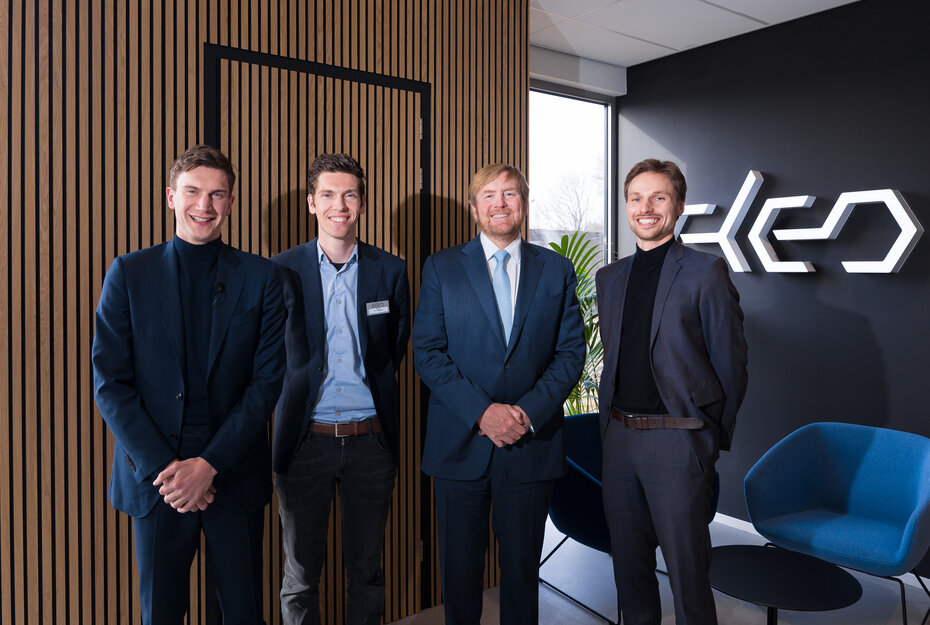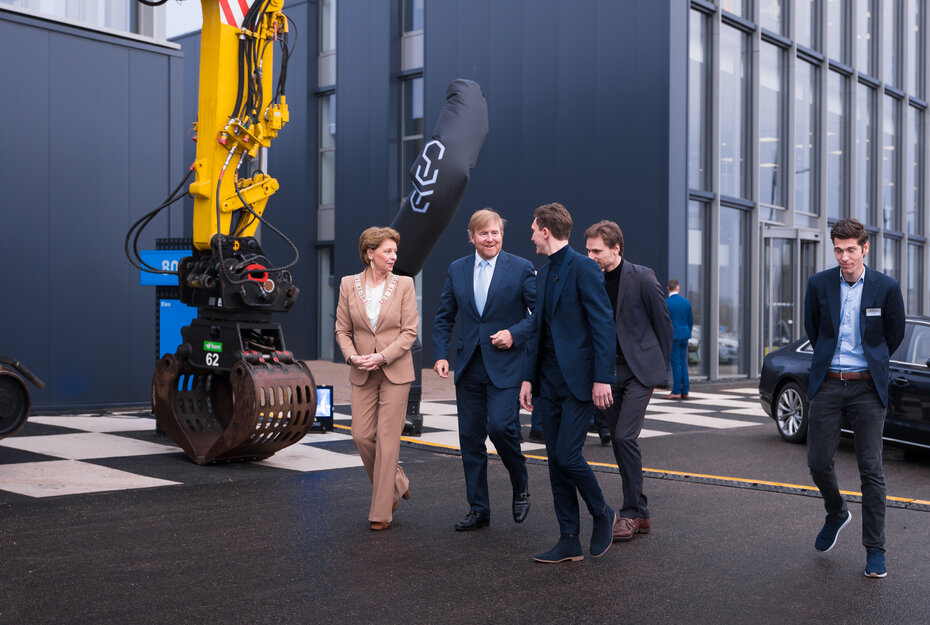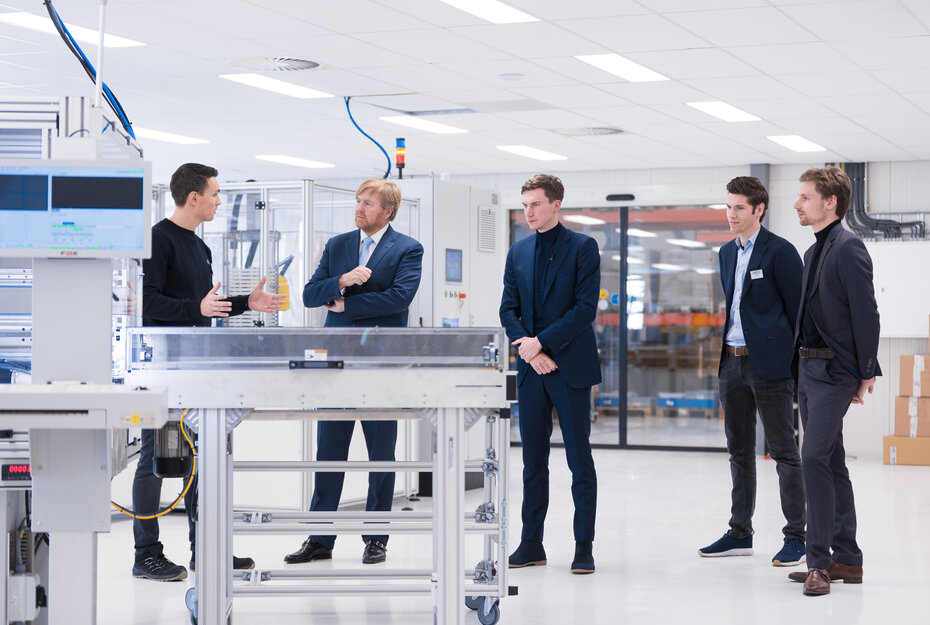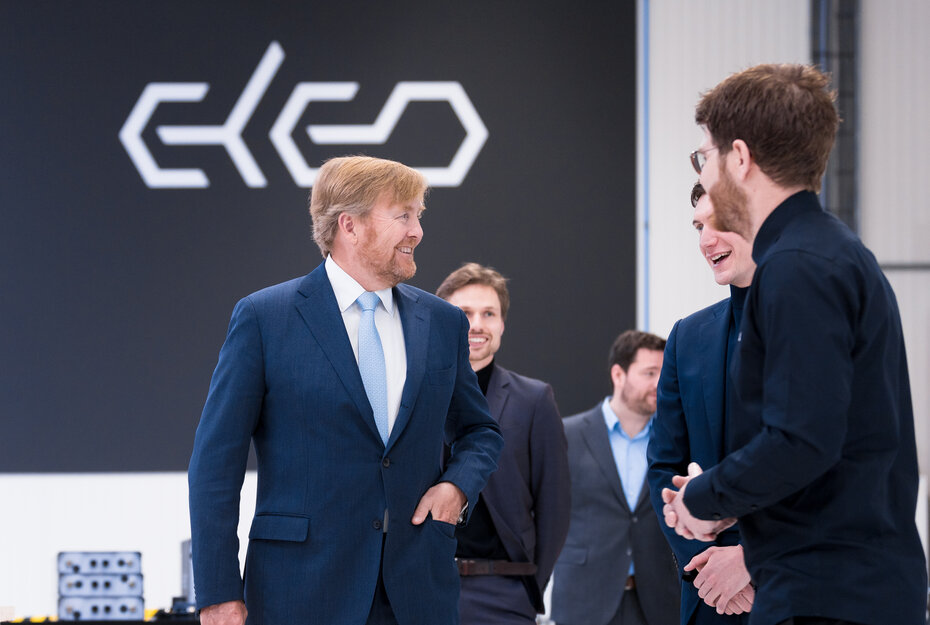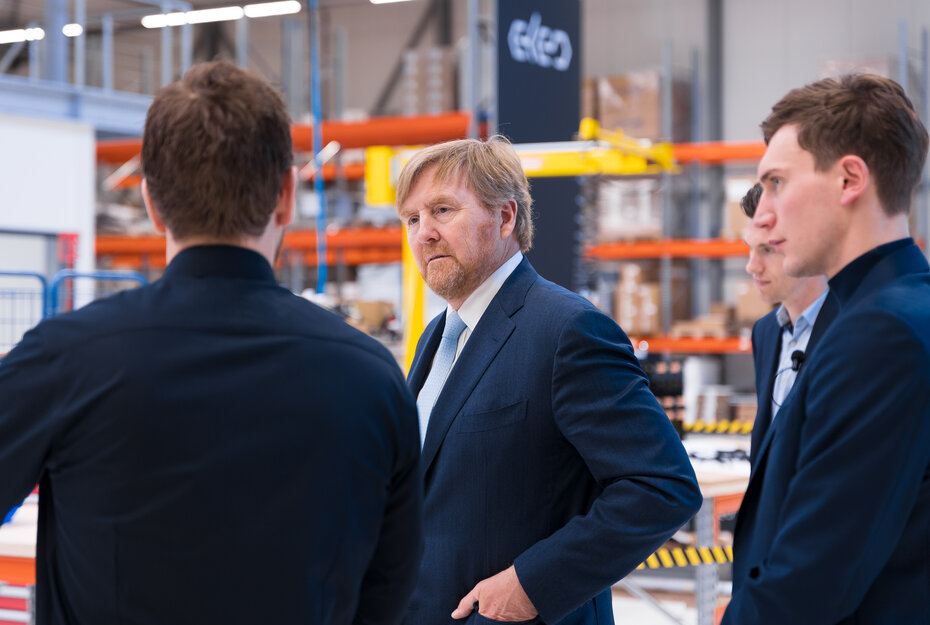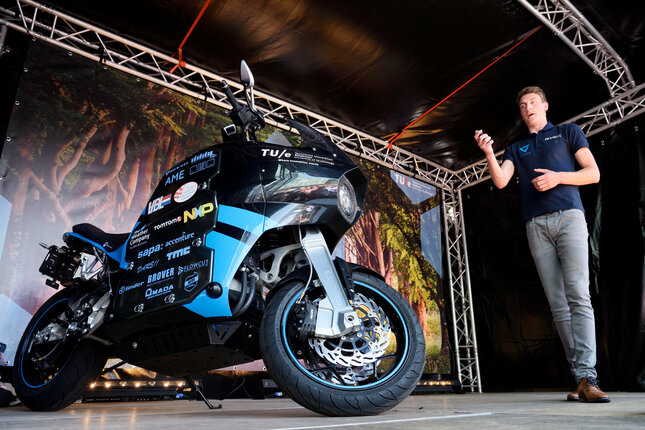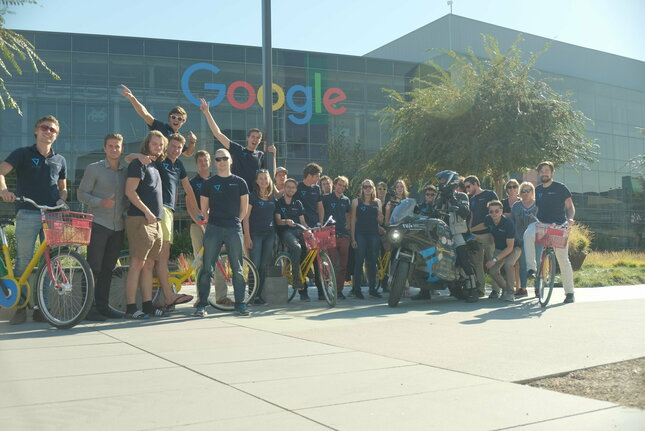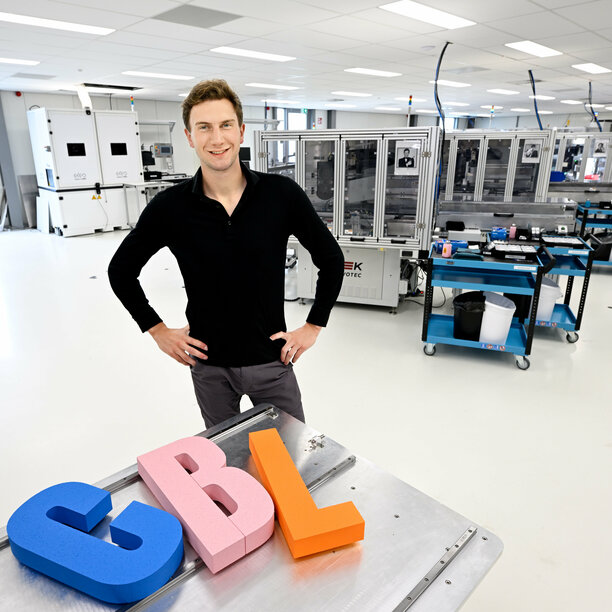'With a healthy dose of open-mindedness, you can go a very long way'
‘The Faces of Challenge-Based Learning’ series: alumnus Bas Verkaik, founder of TU/e spin-off ELEO Technologies. In his student days, he traveled the world on an electric motorcycle with student team STORM. And he was one of the instigators of CBL in the innovation Space.
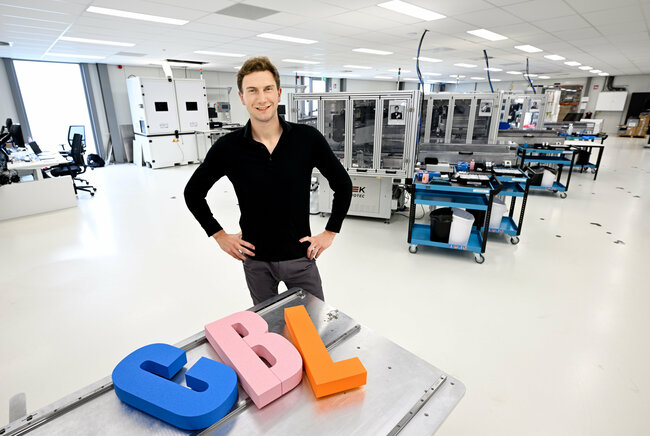
With the innovative educational concept of Challenge-Based Learning (CBL), we are training the engineers of the future at TU/e. Starting this academic year, CBL will play a larger role in the curricula of all our bachelor's programs. Through a series of stories we give a face to the form of education that sometimes takes students - and teachers - out of their comfort zone but, above all, prepares them for the challenges they will have to tackle as engineers. In this instalment alumnus Bas Verkaik, following his adventures with student team STORM, wants to conquer the world sustainably with ELEO Technologies.
Although he never experienced Challenge-Based Learning himself during his studies, Bas Verkaik is a great advocate of this form of education. He believes that you learn the most by doing, being open-minded, making mistakes and daring to think big. The Sustainable Energy Technology alumnus and one of the founders of ELEO Technologies, speaks from experience.
The interview with Verkaik takes place at the modern premises of ELEO Technologies on the Automotive Campus in Helmond. Verkaik is one of the founders of the company, which designs and builds modular battery systems for industrial construction and agricultural machinery. These systems generate sustainable power for electric rollers for asphalting, electric excavators and electric sweepers as well as electric agricultural vehicles or boats.
Royal opening
The following photos were taken during the opening of the new building. In the first photo, you can see King Willem-Alexander alongside the founders of ELEO Technologies. From left to right, they are Bas Verkaik, Bram van Diggelen, and Jeroen Bleker. Photo: ELEO Technologies.
He proudly gives a tour of the new building, which was opened by King Willem-Alexander in January of this year. When asked how he managed to get the King to do this, Verkaik replies simply, “Just a matter of asking.”
In the warehouse are meters-high racks containing housings for the modular battery packs. These are not small units - we’re talking square meters, because the batteries must be able to electrically power enormous machines.
Earning credits
Verkaik had little experience of Challenge-Based Learning while studying Sustainable Energy Technology. “In 2012 doing your bachelor at TU/e meant mainly sitting in lectures and taking exams. Earning credits. I was on my way to getting my bachelor's degree in three years and wanted to do something more, because I thought it was all going a bit too fast.”
What is Challenge-Based Learning?
In this innovative educational concept, students work together to experience how their discipline can contribute to solving challenges from the world around us. They learn what knowledge and expertise is needed to do so and can immediately apply and deepen the knowledge they have acquired in practice by studying or doing research.
Together with students from other disciplines, as well as stakeholders from business, government or science, students learn to think at the system level. In the process, they also learn various other competencies such as collaboration, communication, planning and organization. Student teams are the place par excellence where students can acquire these skills.
The dream
In Verkaik's final undergraduate year, student team STORM crossed his path. This team had the dream of building an electric touring motorcycle on which they wanted to travel around the world in eighty days and, in so doing, demonstrate that sustainable mobility is the future.
“At STORM, you committed yourself for two years, which was perfect for me. I was able to finish my bachelor's degree the first year I was on the team. The following year I had my hands completely free to help build the engine and go on the journey.”
The prototype
The Wave saw the light of day: a motorcycle converted to electric power with 24 battery packs built in-house. Verkaik was one of the riders of the Wave on its round-the-world journey. The more than 23,000-kilometer journey led the team of about 30 students through Europe, Central Asia, China and the United States.
Student teams are perfect incubators for Challenge-Based Learning and its challenges. They start with an open challenge or question and work with it with students from different departments. “It’s a super-unique experience that you don’t get if you just sit in lectures,” Verkaik believes.
The essence of CBL is that you are constantly solving big challenges together, without knowing what else is coming.
Bas Verkaik, ELEO Technologies
“I learned an awful lot during that period: how to build a team, how to make a product, how to involve companies in your plans. If you work with a team of like-minded people to pursue a very different and overly ambitious plan and go all-out for it together, it just might succeed.”
“That combination of extreme passion, commitment and open-mindedness is the key to success. When you encounter problems, you solve them together. That, in my mind, is the essence of CBL: you're constantly solving big challenges, without knowing which ones are coming next.”
Back in the lecture benches
The Monday after Verkaik returned from the world trip with team STORM, he picked up his studies again, although it wasn’t easy. “We had seen the whole world and were inundated with media attention. It felt like the world was at our feet. During our trip, we experienced what can happen when you dare to think bigger. And then I went back to the lecture benches: what a contrast that was.”
Going back to the lecture benches after that trip around the world was horrible, such an extreme contrast.
Bas Verkaik, ELEO Technologies
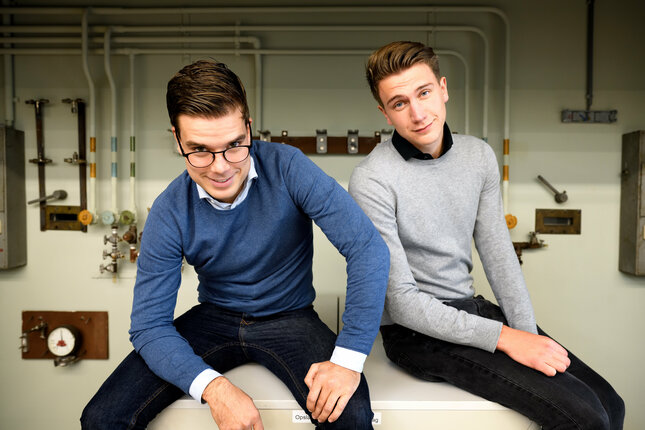
Verkaik’s conviction that you learn much more with student teams brought him into the picture at the TU/e innovation Space, the expertise center for CBL and entrepreneurship that had just started. Together with fellow student Tom Selten, among others, who had been on Solar Team Eindhoven, he was the driving force behind bringing as many students as possible into contact with student teams.
Joining a student team is one of the best things you can do as a student.
Bas Verkaik, ELEO Technologies
Impact
Meanwhile, the limitations to what was achievable became clear, and Verkaik put his head together with STORM teammates Jeroen Bleker and Bram van Diggelen. “Can we continue team STORM? It proved difficult to keep it going as a student team. For example, there was no recurring competition like the World Solar Challenge,” says Verkaik retrospectively.
The trio decided to turn their knowledge and skills into a business. “Although we had no idea how to go about it, what we did know was that we wanted to do something with electric vehicles, because the world needs to make the transition to sustainable vehicles,” Verkaik says.
That became startup SPIKE Mobility, where Verkaik, Bleker and Van Diggelen made electric powertrains for vehicles, for example for motorcycles in Kenya. “It felt really good for the three of us to get back to work together,” says Verkaik.
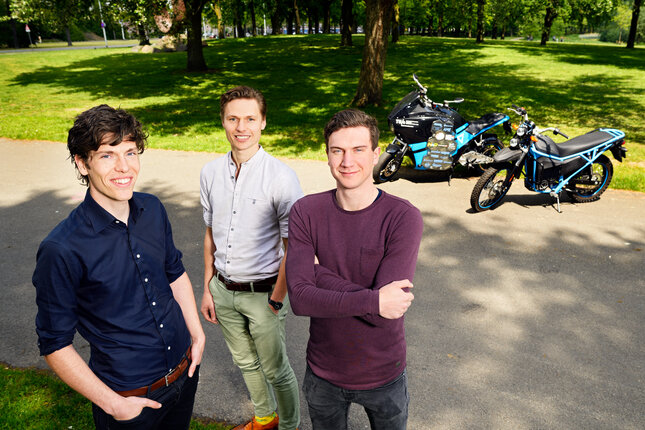
Unconscious networking
In doing so, the network they had built up during their time with team STORM came in handy. Verkaik: “For the much-needed money and materials, we needed companies at STORM. In retrospect, that turned out to be a very effective way of networking. We did it because it was necessary, not to pimp our resumé. Within that network we started talking. Help us, how can we start something with this?”
We learned a lot in those early years - especially what doesn't work.
Bas Verkaik, ELEO Technologies
SPIKE was the starting point for ELEO Technologies. “We started doing some little projects, but didn’t really have a business plan. We learned where the demand is, how we could make money. As a student team, we were not at all concerned with how to set up a business. We learned a lot in those first few years - especially what doesn’t work,” he says with a smile.
What they also learned was that the battery pack is often the bottleneck to the proper performance of an electric vehicle. “We started focusing on that at some point. We created our own battery pack and kept developing it. We kept coming up with new applications, from buggies to racing cars. Just seeing what works and what we needed to work towards.”
Crucial polluters
This is how ELEO ended up electrifying so-called off-highway machines. “This involves machines that are not on the road, but perform crucial functions in our lives. These machines are used to build houses and roads, and grow food. It is a huge market, which is highly polluting and complex. Because each device is different, it needs a different battery pack to function electrically. We focus on that important but complex challenge,” Verkaik says.
ELEO goes international
“We have already helped many parties in the Netherlands make the switch to electric and sustainable machines, but are now spreading our wings internationally. The market is driven by large companies from Japan and the US that make machines for the global market.”
To that end, ELEO has partnered with Yanmar, a major Japanese party. “If you want to grow, you need money,” says Verkaik. “You are by definition dependent on other parties for that and our feeling with this family-owned company is good. Yanmar is an important name in the industry. We keep the freedom to do our thing, and can tap into their vast experience and network.”
You need to be open-minded to be able to tackle challenges and solve problems.
Bas Verkaik, ELEO Technologies
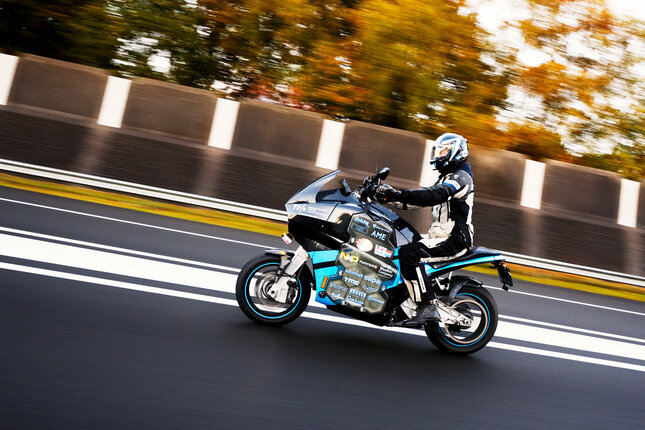
Open-mindedness
Open-mindedness. This word and the accompanying mindset guide everything Verkaik undertakes. “With a healthy dose of open-mindedness, you can go a very long way,” he says. That mindset still helps him, although he can no longer be completely naive with the responsibility for the 120 employees that the fast-growing ELEO Technologies already has. By the end of 2024, the building in Helmond will be four times its size and ELEO plans to scale up to 200 employees.
“It will be a different degree of open-mindedness, because you do need it to continue to tackle challenges and solve problems. The products we deliver have to be high quality and safe. That requires sound processes and operation. At the same time, I want to keep some of that naive curiosity for new developments.”
The secret of student teams? They have nothing to lose.
Bas Verkaik, ELEO Technologies
The future
What challenges lie ahead for Verkaik and his company in the next five years? “By 2030, with ELEO, we will be one of the leading players in batteries for off-highway machines. Then we will have factories in America, Asia, Europe and the Netherlands where we produce our batteries to further drive electrification.”
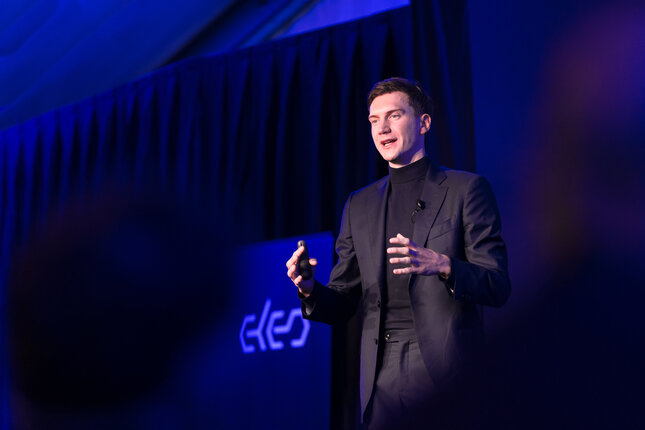
It is a utopia to think that in five years everything will be flawless and all I will be doing is twiddling my thumbs in my chair. Challenges will always keep coming.
Bas Verkaik, ELEO Technologies
And five years from now, Verkaik still hopes to have challenges to face. “It’s a utopia to think that in five years everything will be flawless and I’ll just be sitting in my chair twiddling my thumbs. I enjoy solving challenges. I’ve been doing that since I joined the student team ten years ago. I’ve been solving challenges for ten years and it won’t be any different in the future.”
Golden tip
Verkaik remains an ambassador for CBL and innovation Space, as evidenced by his enthusiastic appeal for TU/e students: “Join a student team! My golden tip is: just start, preferably with a healthy dose of passion and open-mindedness. Dare to think big, because you have nothing to lose. And the energy and time you put in will pay off. Everything you learn in a student team will come in handy when you start working later on. Even then you are constantly working to solve unforeseen problems.”
More Faces of Challenge-Based Learning
More on our strategy
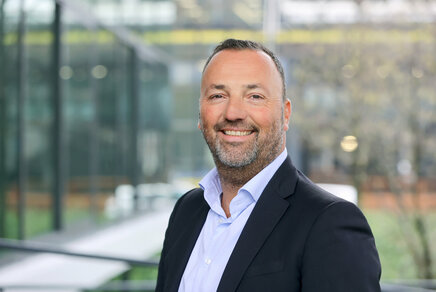

![[Translate to English:] [Translate to English:]](https://assets.w3.tue.nl/w/fileadmin/_processed_/c/f/csm_BvOF_2024_0319_AEV_license_TUe_Dirk_van_Meer_-_CORE_1__c976e259a5.jpg)
